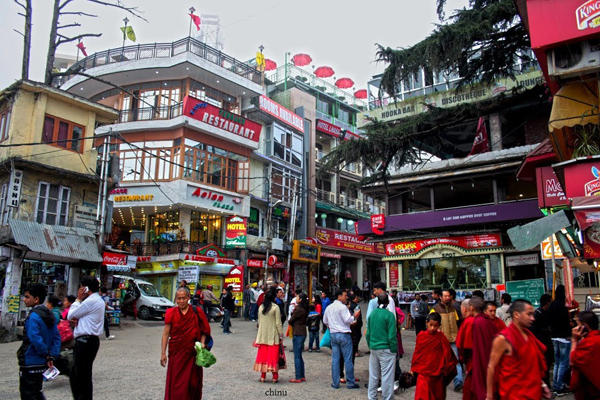
McLeod Ganj is a suburb of Dharamshala in Kangra district of Himachal Pradesh, India. It is known as “Little Lhasa” or “Dhasa” because of its large population of Tibetans. The Tibetan government-in-exile is headquartered in McLeod Ganj. McLeod Ganj Central Square that is famous for Thangka tapestry paintings, wooden carvings and handicrafts. Make sure to check out the Nowrojee and Son General Store, a 157-year-old shop that harks back to the colonial past of India.
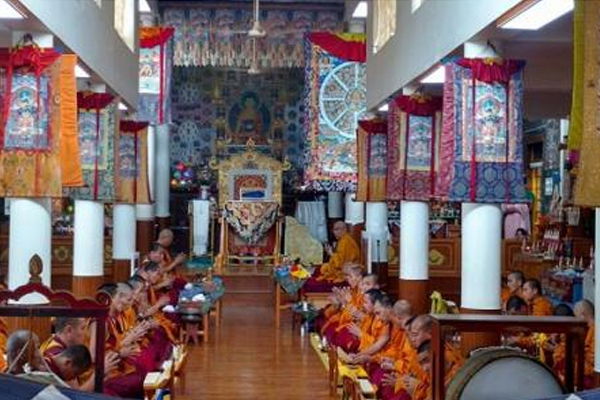
Often referred to as “Dalai Lama’s Temple” is currently located in Mcleod Ganj. It is the personal monastery of the 14th Dalai Lama. Another name for this temple-complex is Namgyal Tantric College.
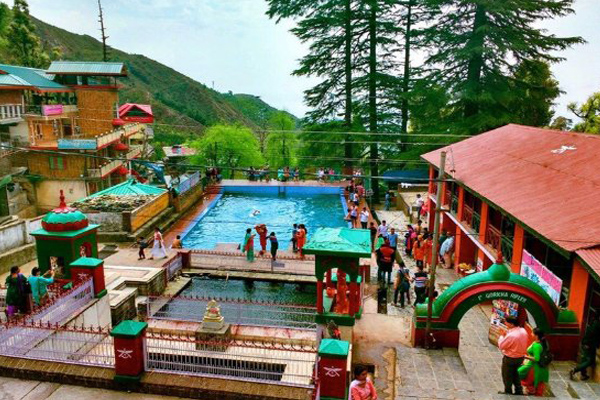
Bhagsu also known as Bhagsunag or Bhagsunath is a village near Mcleodganj in the Dharamshala district. Popular for Bhagsunag waterfall and an ancient temple, named Bhagsunag temple tourists need to trek to reach the waterfall.[3][4]
In early 18th century the Gorkhas came here with British to settle, later they formed the historic the 1st Gorkha Rifles in 1815. Bhagsu is also the home of 1st Gorkha Rifles .
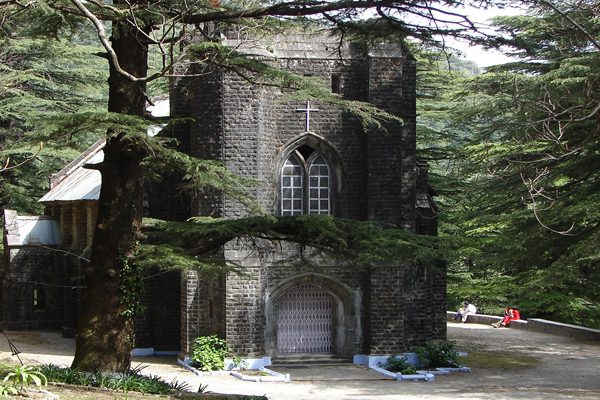
St. John in the Wilderness is a Church of North India church dedicated to John the Baptist built in 1852, located on the way to McLeodGanj, at Forsyth Gunj. Set amidst deodar forest, and built in neo-Gothic architecture, the church is known for its Belgian stained-glass windows donated by Lady Elgin (Mary Louisa Lambton), wife of Lord Elgin. Though the church structure survived the 1905 Kangra earthquake, which killed close to 19,800 people, injured thousands in the Kangra area, and destroyed most buildings in Kangra, Mcleodganj and Dharamshala; its spire, Bell tower, was destroyed. Later, a new bell, cast in 1915 by Mears and Stainbank, was brought from England and installed outside in the compound of the church.
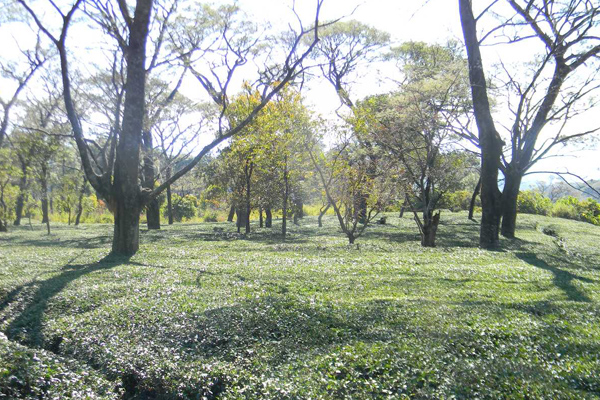
The smallest tea region of India, Dharamshala has beautifully lined and organized tea gardens across the Kangra Valley. It is known for its good quality tea and is available for purchase in many shops across Dharamshala and Mcleodganj.
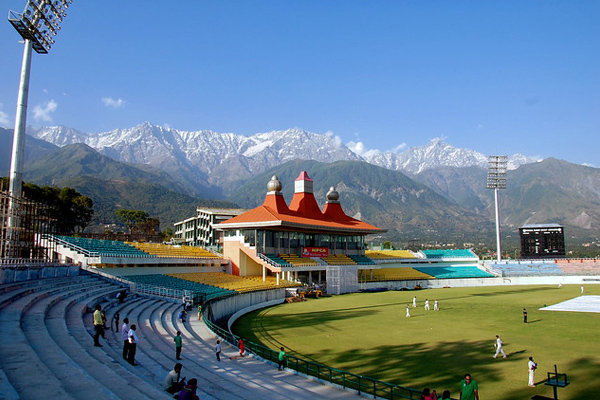
HPCA Stadium, is a picturesque cricket stadium located in the city of Dharamshala District in Himachal Pradesh, India. The town of Dharamsala is best known internationally as the home of the Dalai Lama of Tibet. The stadium served as the home ground for the Himachal Pradesh cricket team for Ranji Trophy matches and other domestic matches. The stadium also hosted some IPL matches as a home stadium for Kings XI Punjab.[2]
The picturesque venue is unique in India as it is situated at an altitude of 1,457 m above the sea level and has the snow-capped Himalayan mountains in the background.
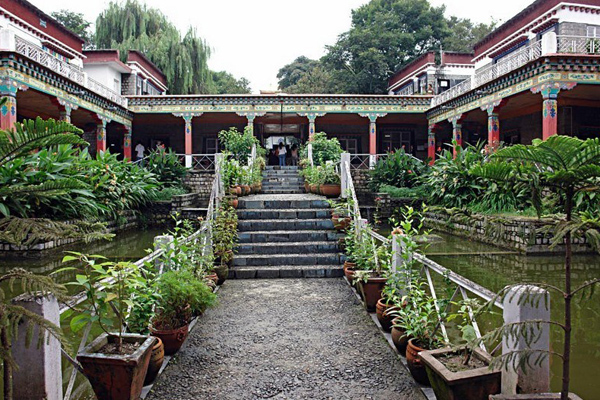
Norbulingka Institute, founded in 1995 by Kelsang and Kim Yeshi at Sidhpur, near Dharamshala, India, is dedicated to the preservation of the Tibetan culture in its literary and artistic forms.
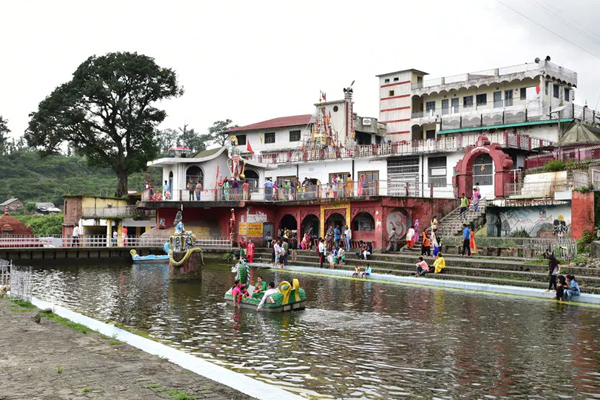
Merely 10 km from Palampur lays the ancient temple of Chamunda Devi on the banks of the Baner River. The temple, counted among 51 shakti peethas, is dedicated to Chamundeshwari Devi, one of seven matrikas. The legend has it that Chamunda emerged from an eyebrow of Goddess Durga with an aim to kill demons Chanda and Munda. After a fierce battle, Devi killed both these generals of demon kings Shumbha and Nishumbha.
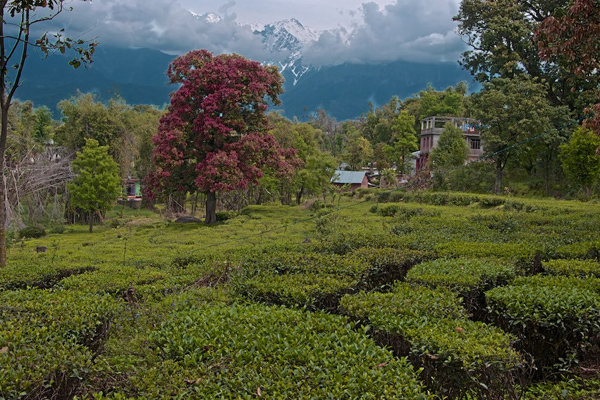
Palampur is rightly known as the Tea Capital of Northern India and is famous all across the country for its vast spreads of lush tea gardens, which are the chief attraction of the town. The tea gardens of Palampur are the perfect place to witness the vast tea gardens and the tea making process in great detail. Stepping into these lush green gardens makes you feel as if you have stepped into a dream world altogether, and the divine fragrance transforms you into heaven. This experience is heightened for tea lovers, for whom this place is like paradise on earth.
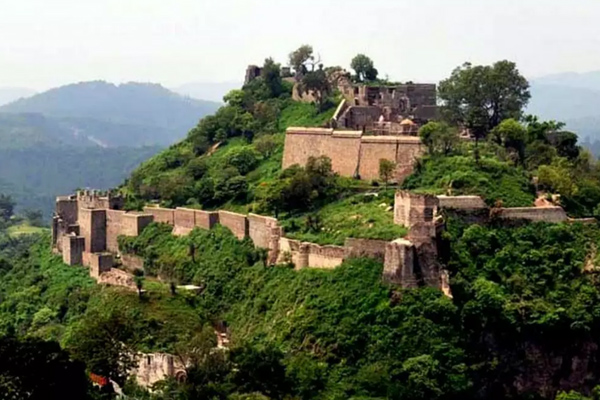
The Kangra Fort was built by the royal Rajput family of Kangra State (the Katoch dynasty), which traces its origins to the ancient Trigarta Kingdom, mentioned in the Mahabharata epic. It is the largest fort in the Himalayas and probably the oldest dated fort in India.